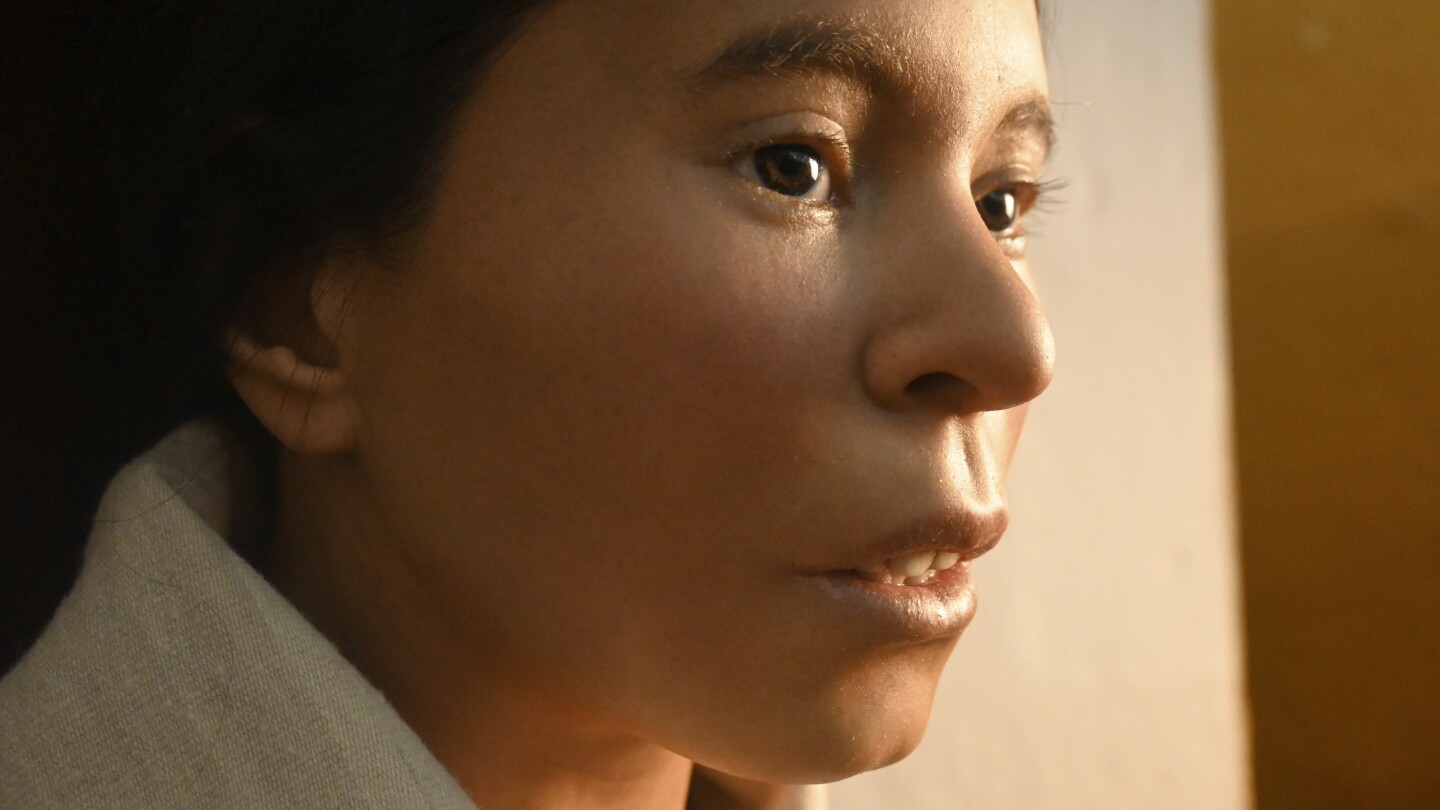LIMA, Peru (AP) — The possible living face of Peru’s most famous mummy, a teenage Inca girl sacrificed in a ritual more than 500 years ago atop the Andes, was unveiled Tuesday.
The silicone-made bust portrays a young woman with pronounced cheekbones, black eyes and tanned skin.
Produced by a team of Polish and Peruvian scientists who worked with a Swedish sculptor specializing in facial reconstructions, it was presented in a ceremony at the Andean Sanctuaries Museum of the Catholic University of Santa Maria in Arequipa.
“I thought I’d never know what her face looked like when she was alive,” said Johan Reinhard, the U.S. anthropologist who found the mummy known as “Juanita” and the “Inca Ice Maiden.”
Reinhard discovered the mummy in 1995 at an altitude of more than 6,000 meters (19,685 feet) on the snow-capped Ampato volcano.
“Now 28 years later, this has become a reality thanks to Oscar Nilsson’s reconstruction,” he said.
Nilsson, a Swedish archaeologist and sculptor who specializes in 3D facial reconstructions of ancient humans, told The Associated Press in an email that it took him “about 400 hours of work” to model the face.
Dagmara Socha, a Polish bioarchaeologist at the University of Warsaw’s Center for Andean Studies, said at the ceremony that the first step in achieving Juanita’s face was “to obtain a replica of the skull.”
Then “body scans, DNA studies, ethnological characteristics, age, complexion” were used in the facial reconstruction, the university said in a statement.
According to anthropological studies, Juanita was sacrificed between A.D. 1440 and 1450, when she was between 13 and 15 years old. She was 1.40 meters (55 inches) tall, weighed 35 kilos (77 pounds) and was well nourished.
The probable cause of death was a severe blow to the right occipital lobe, according to researchers at Johns Hopkins University who performed a CT scan.
Reinhard, who has uncovered more than 14 Inca human sacrifices high in the Andes, including three children in an icy pit at Argentina’s Llullaillaco volcano, said scientists have been investigating aspects of Juanita’s life, such as her diet and the objects found next to her.
“These findings have helped us better understand her life and the Inca culture,” he said. “Now we can see what she really looked like, which makes her even more alive.”

